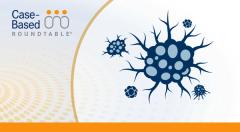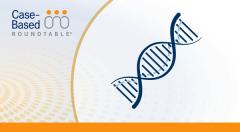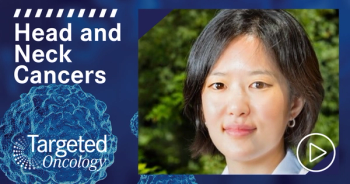
Toripalimab Combo Delivers Long-Term Efficacy in Nasopharyngeal Cancer
Deborah Wong, MD, PhD, discusses the toripalimab combination that is now considered standard of care in nasopharyngeal cancer.
Deborah Wong, MD, PhD, associate clinical professor in the Department of Medicine, Division of Hematology-Oncology and director of the Head and Neck Medical Oncology Program at the University of California, Los Angeles, discusses the toripalimab (Loqtorzi) combination that is now considered standard of care in nasopharyngeal cancer (NPC).
The FDA approved gemcitabine, cisplatin, and toripalimab for first-line treatment in patients with recurrent and metastatic nasopharyngeal cancer. This was based on a double-blinded, randomized phase 3 trial called JUPITER-02 (NCT03581786). In the study, 289 patients were randomly assigned to receive gemcitabine/cisplatin plus placebo vs gemcitabine/cisplatin plus toripalimab.
This trial demonstrated a significantly improved progression-free survival (PFS) in patients with NPC receiving toripalimab. The median overall survival (OS) for the toripalimab group had not been reached in the initial read-out of the data. Recent follow-up data further supported these findings, establishing the combination of gemcitabine, cisplatin, and toripalimab as the new standard of care, according to Wong.
TRANSCRIPTION
0:10 | This gemcitabine, cisplatin, toripalimab combination, which has been approved for frontline treatment of recurrent and metastatic nasopharyngeal cancer, was approved by the FDA based on a large phase 3, double-blinded, randomized study called JUPITER-02. This was published in 2023 initially, and in this study, 289 patients were [randomly assigned] to receive either gemcitabine and cisplatin, which was the prior standard of care, with placebo or gemcitabine, cisplatin, and toripalimab. Randomization was 1:1, and these patients received 6 cycles of chemotherapy with either placebo or toripalimab. Following this, patients continued with maintenance toripalimab or placebo, depending on which arm of the study they were randomized to. Treatment continued until 2 years of therapy or until progression of disease or unacceptable toxicity.
1:22 | The data from JUPITER-02 were very impressive, in which at the final analysis from the initial publication, PFS was significantly improved in the patients who received toripalimab. Specifically, the median PFS was 21.4 months vs 8.2 months, with an HR of 0.52. At the time of the initial publication or the initial analysis of the phase 3 data, median OS for the group receiving toripalimab had not yet been reached, whereas it was 33.7 months for placebo. That was statistically significant as well.
2:08 | There have been follow-up survival data that have been published recently in the [Journal of Clinical Oncology] this past year, in which you do see a continued separation of the survival curves in favor of the arm containing toripalimab. Based on these impressive data, the frontline standard of care for recurrent and metastatic nasopharynx cancer is gemcitabine, platinum, and toripalimab.











































